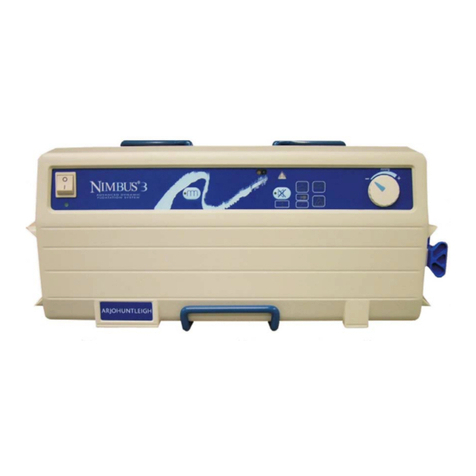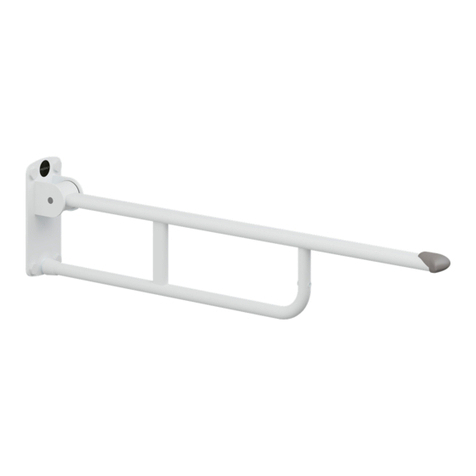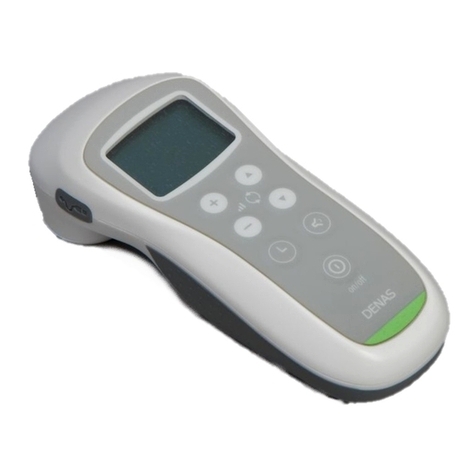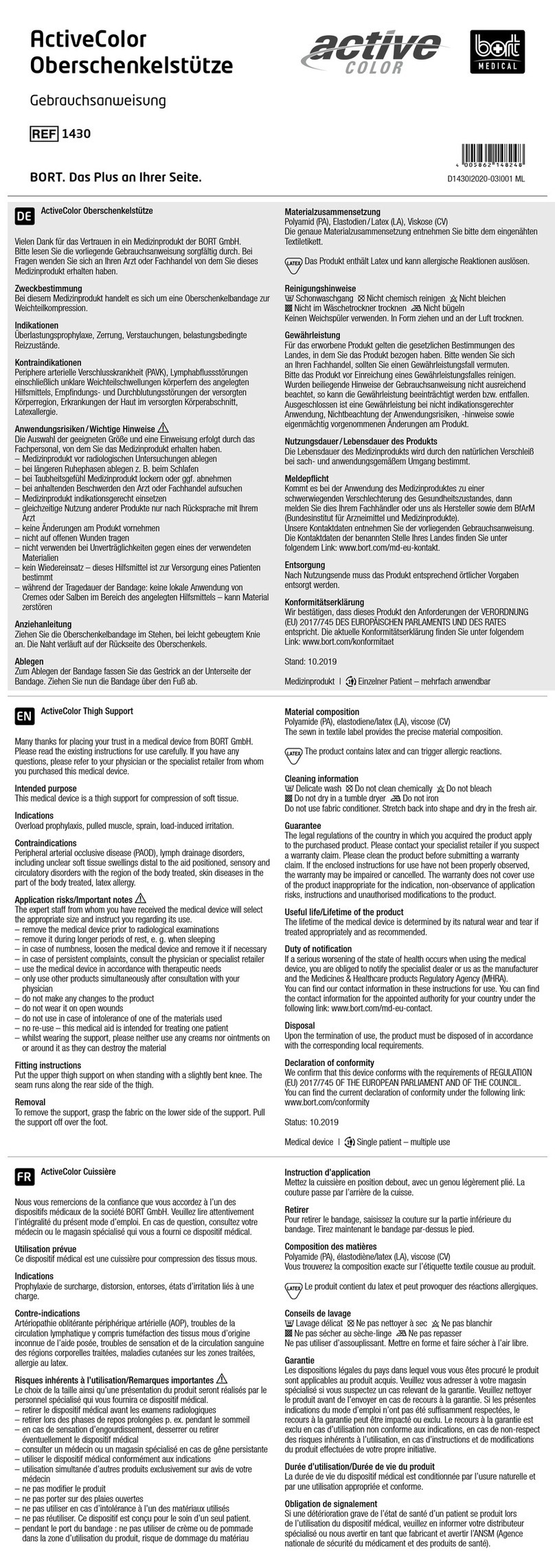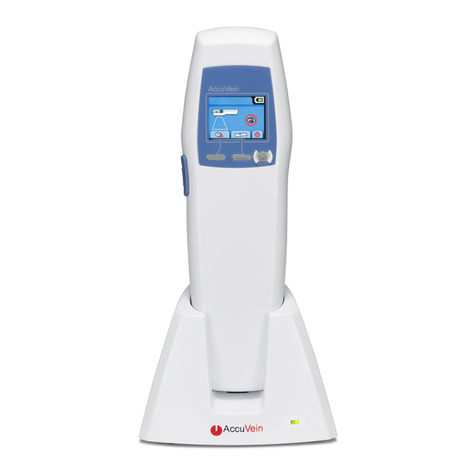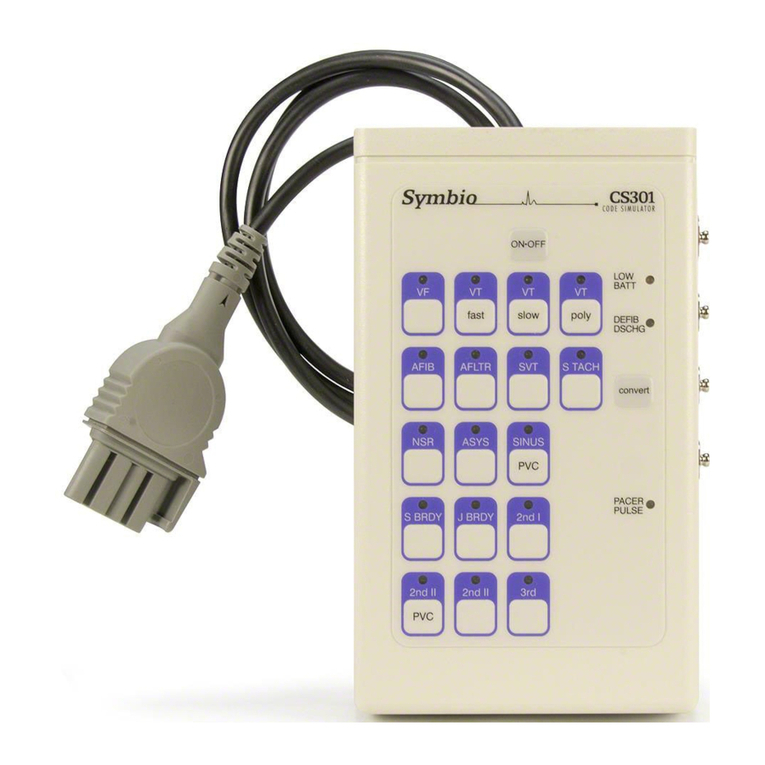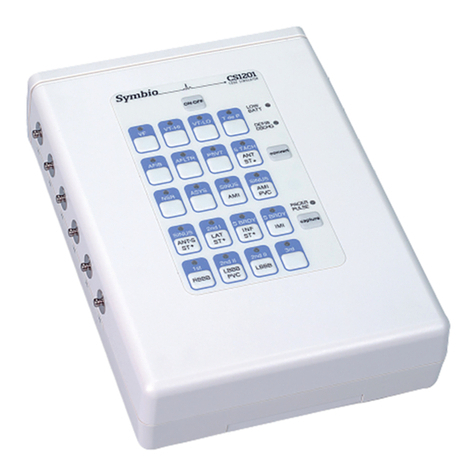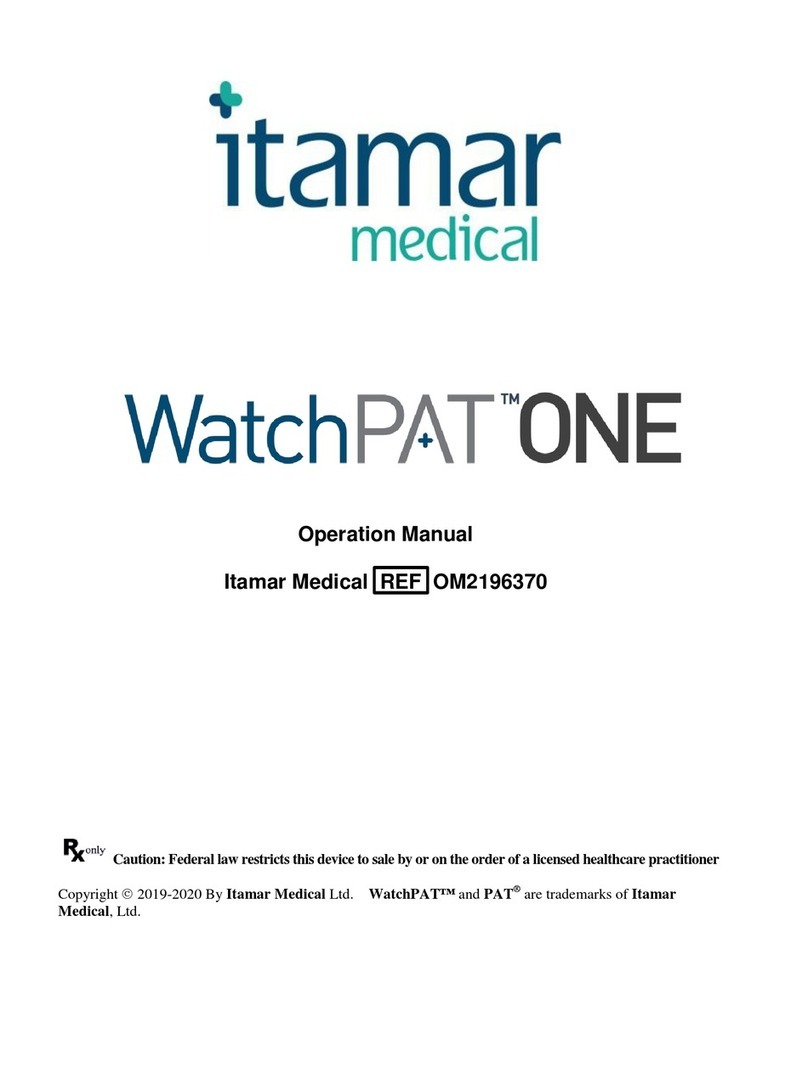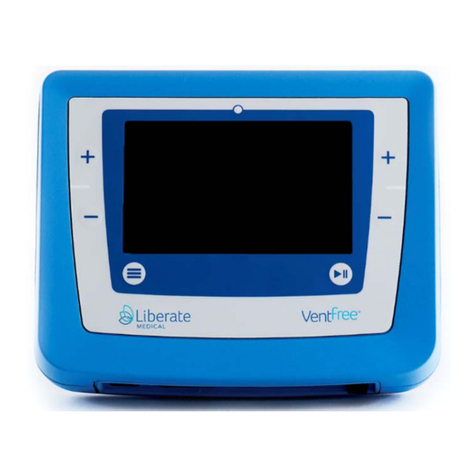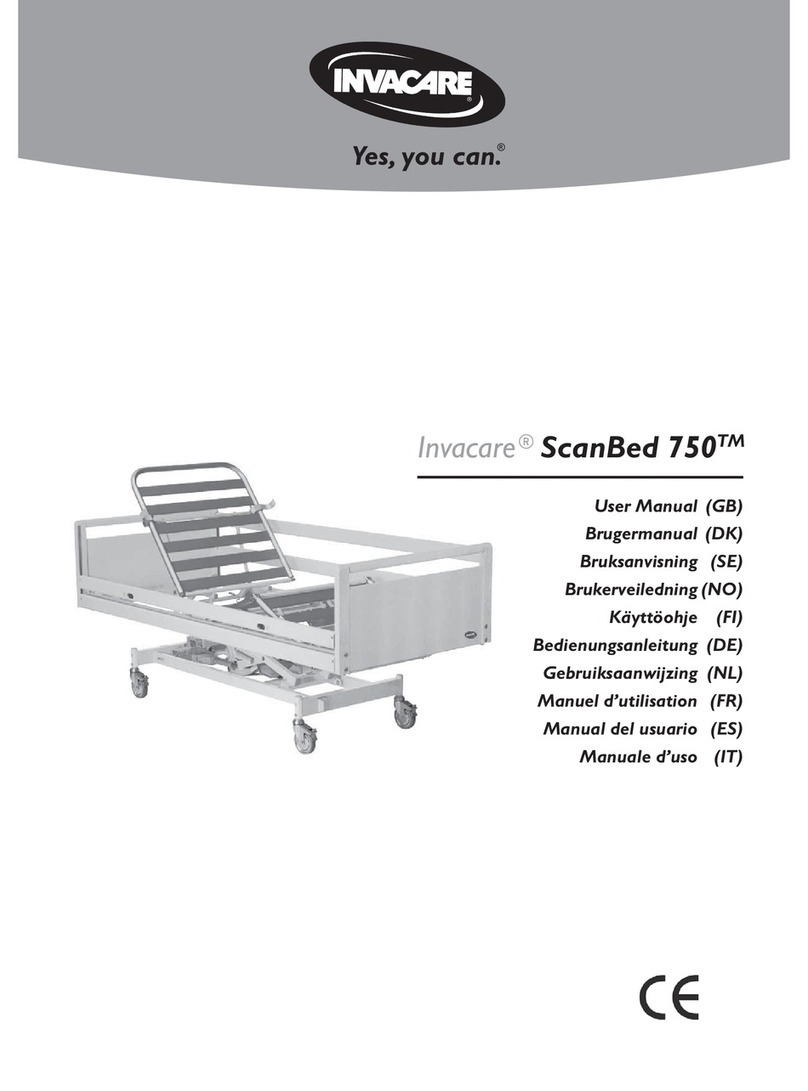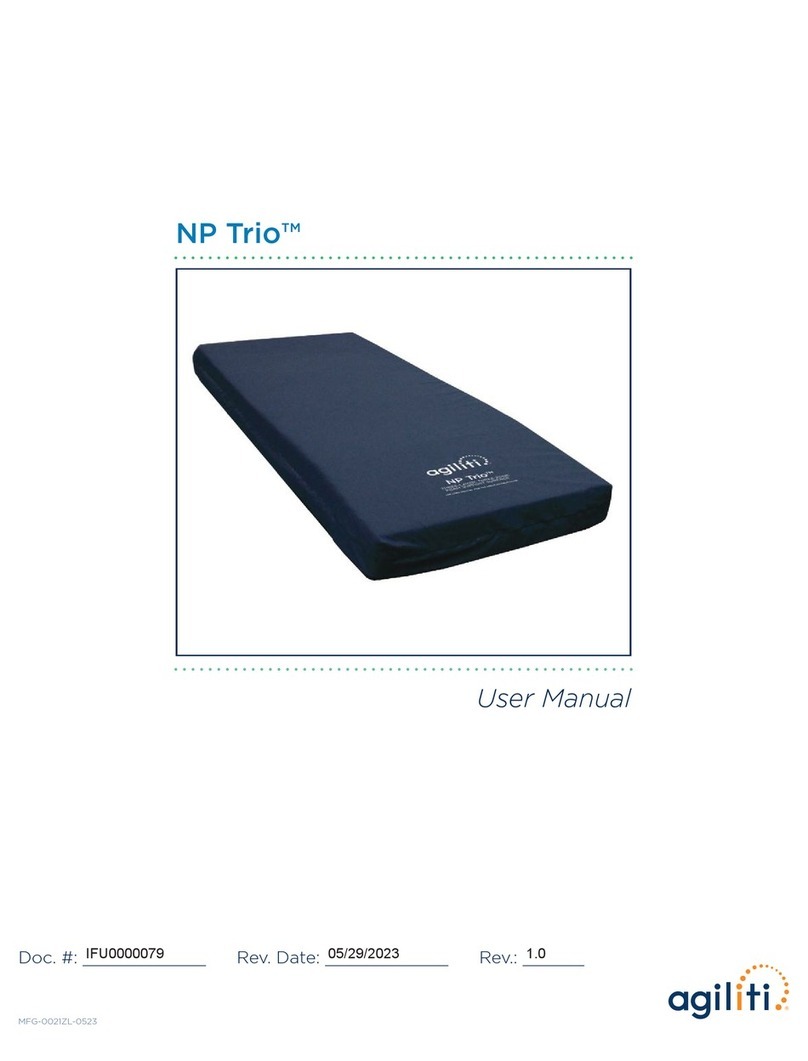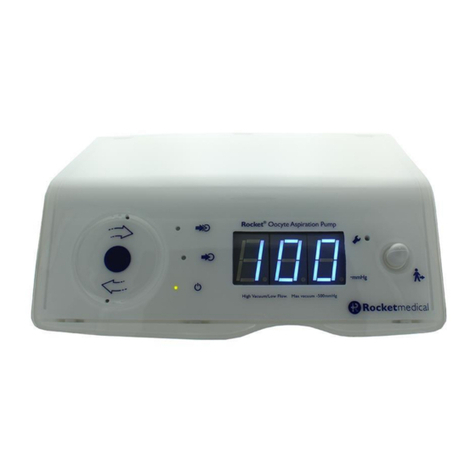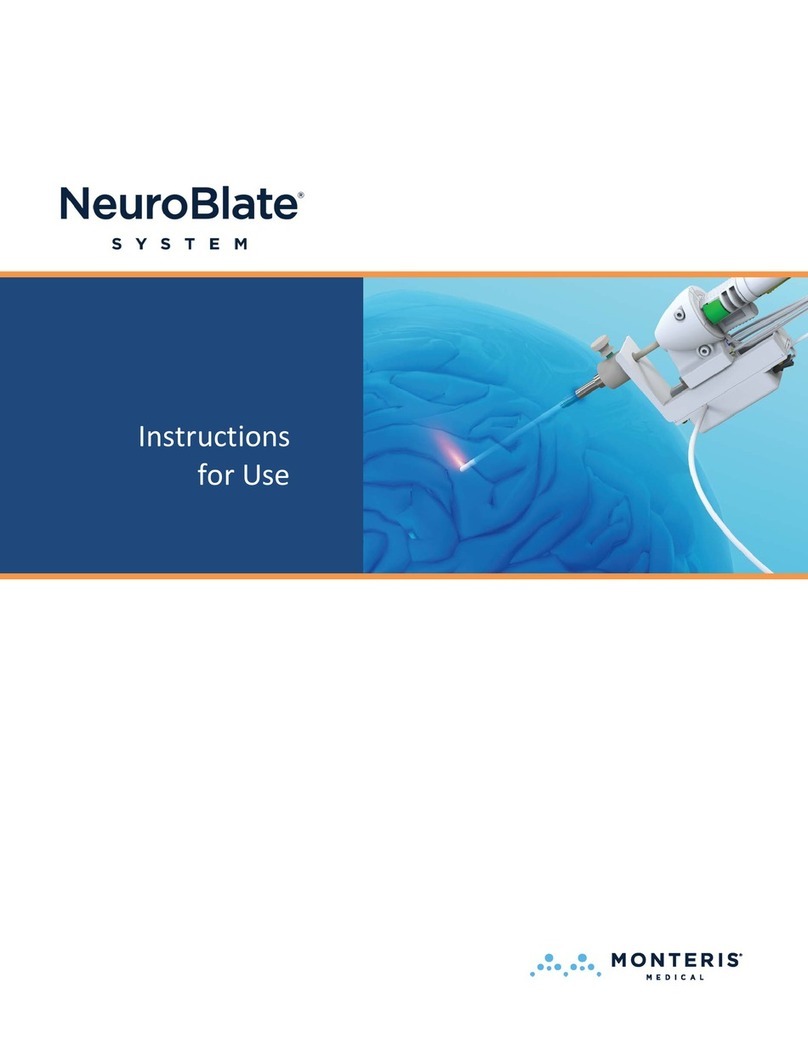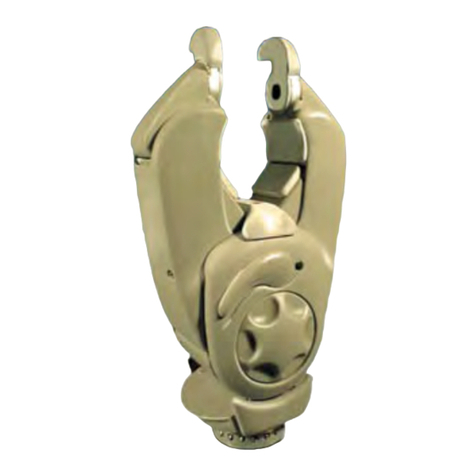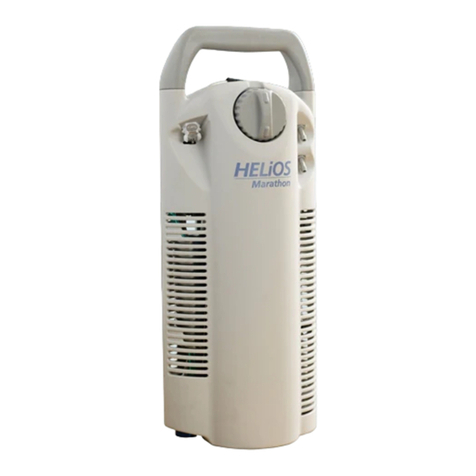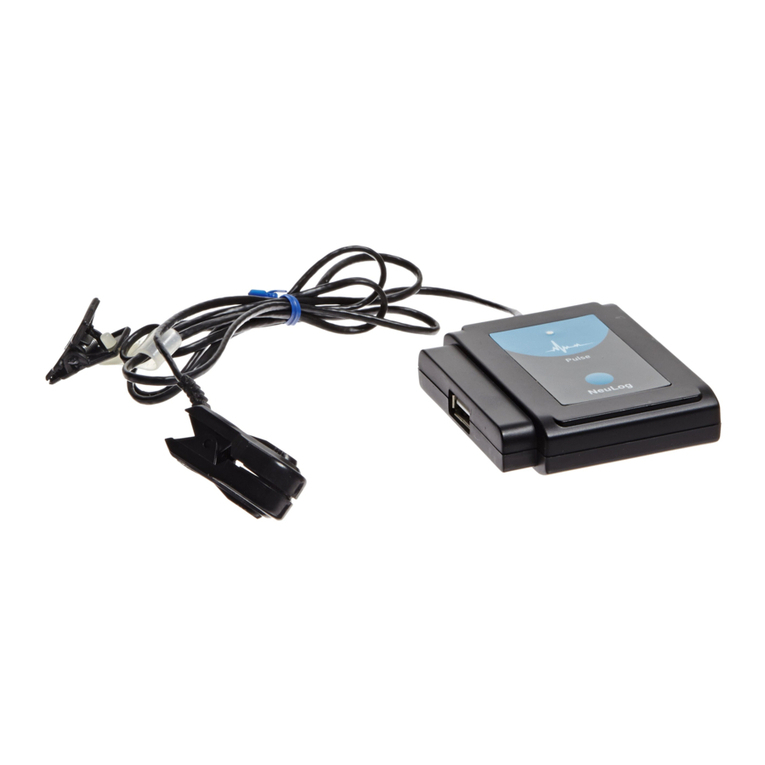Controls and Indicators Rhythms for Defibrillator Training Defibrillator Exercise
12
LOW BATT
Red indicator illuminates when battery
needs to be replaced.
DEFIB DISCHG
Green indicator illuminates for two
seconds when defib discharge is
sensed.
convert
Simulate cardioversion by activating
convert feature. CS301 responds to
defib discharge.
convert
The convert feature allows you to convert automatically from one rhythm
(running rhythm) to another rhythm (waiting rhythm) when a discharge is
delivered from a defibrillator set to 50J or more.
To perform convert operation:
1. Press convert key. Indicator of running rhythm pulses brighter.
2. Press key of rhythm to be simulated immediately after defib discharge.
Indicator of this (waiting) rhythm blinks on and off.
3. Discharge defibrillator. The waiting rhythm becomes the running rhythm.
To cancel convert operation before it's completed, either press convert key again or
press key of running rhythm. If convert operation is started, but a discharge is not
sensed within two minutes, the convert operation cancels automatically.
Connect simulator to defibrillator. For help, see Getting Started, page 5.
Exercise: Convert VF to NSR using manual defibrillator.
at simulator:
1. Press VF key. VF indicator glows steadily. Confirm VF is displayed on monitor.
2. Press convert key. VF indicator pulses brighter.
3. Press NSR key. NSR indicator blinks on and off. VF indicator glows
steadily again.
at defibrillator:
4. Select 360J using Energy Select switch (1).
5. Press Charge button (2). Listen for charge ready tone.
6. Press both Discharge buttons (3) simultaneously.
7. After discharge observe that:
On monitor, NSR is displayed.
At simulator, NSR indicator glows steadily, and VF indicator is off.
The CS301Code Simulator is an easy to use training tool that allows you to practice
defibrillation procedures, external pacing procedures, and arrhythmia recognition.
Connect your defibrillator and external pacer directly to the CS301 for safe,
interactive training. For arrhythmia recognition, select from 17 rhythms, including
fibrillations, tachycardias, and bradycardias.
3
PACER PULSE
Green indicator flashes when external
pacer pulse is sensed. (Captured
beat is simulated, too.) Sensing occurs
when external pacer current set to
60mA - 70mA or more.
VF VT VT
AFIB SVT
NSR ASYS SINUS
S BRDY J BRDY 2nd I
2nd II 2nd II 3rd
ON OFF
LOW
BATT
DEFIB
DSCHG
VT
S TACH
convert
PVC
PACER
PULSE
PVC
slow
fast poly
AFLTR
VF Ventricular Fibrillation.
VT fast Ventricular Tachycardia. Wide QRS. Rate: 185.
VT slow Ventricular Tachycardia. Wide QRS. Rate: 140.
VT poly Ventricular Tachycardia. Fluctuating QRS axis.
AFIB Atrial Fibrillation. Ventricular rate: 120 to 160.
AFLTR Atrial Flutter (2:1). Ventricular rate: 150.
SVT SVT alternates with NSR, then remains in SVT. SVT rate: 216.
S TACH Sinus Tachycardia. Rate: 120.
NSR Normal Sinus Rhythm. Rate: 72.
ASYS Asystole.
SINUS PVC Sinus Rhythm with PVCs. Sinus rate: 72.
S BRDY Sinus Bradycardia. Rate: 40.
J BRDY Junctional Bradycardia. Rate: 42.
2nd I 2nd deg. type I AV Block (4:3). Atrial rate: 60.
2nd II PVC 2nd deg. type II AV Block (4:3). PVCs. Wide QRS. Atrial rate: 60.
2nd II 2nd deg. type II AV Block (4:3). Wide QRS. Atrial rate: 60.
3rd 3rd deg. AV Block. Wide QRS. Ventricular rate: 37.
Rhythms for External Pacer Training External Pacer Exercise
Connect simulator to external pacer. For help, see Getting Started, page 5.
To simulate paced beats, pacer Rate must be greater than rate of selected rhythm,
and pacer Current must be greater than simulator capture level.
Exercise: Pace 3rd degree AV block at rate of 70 ppm.
at simulator:
1. Press 3rd key. Confirm 3rd degree AV block is displayed on monitor.
at pacer:
2. Select Pacer On. Verify sense markers are displayed with each R wave.
(If not, press ECG Size button until R wave markers are observed.)
3. Select rate of 70 ppm using Rate control.
4. Press Start/Stop button to start pacing.
5. Increase pacer current, using Output control, until you observe paced
beats on monitor. Pacer current setting should read 60mA - 70mA.
Note: If VF is selected rhythm, simulator won't generate paced beats.
Deliver defibrillation discharge to convert automatically.
VF NSR
Initiate pacing to simulate paced beats.
Adult 3rd degree AV Block. Paced beats at 70 ppm.
